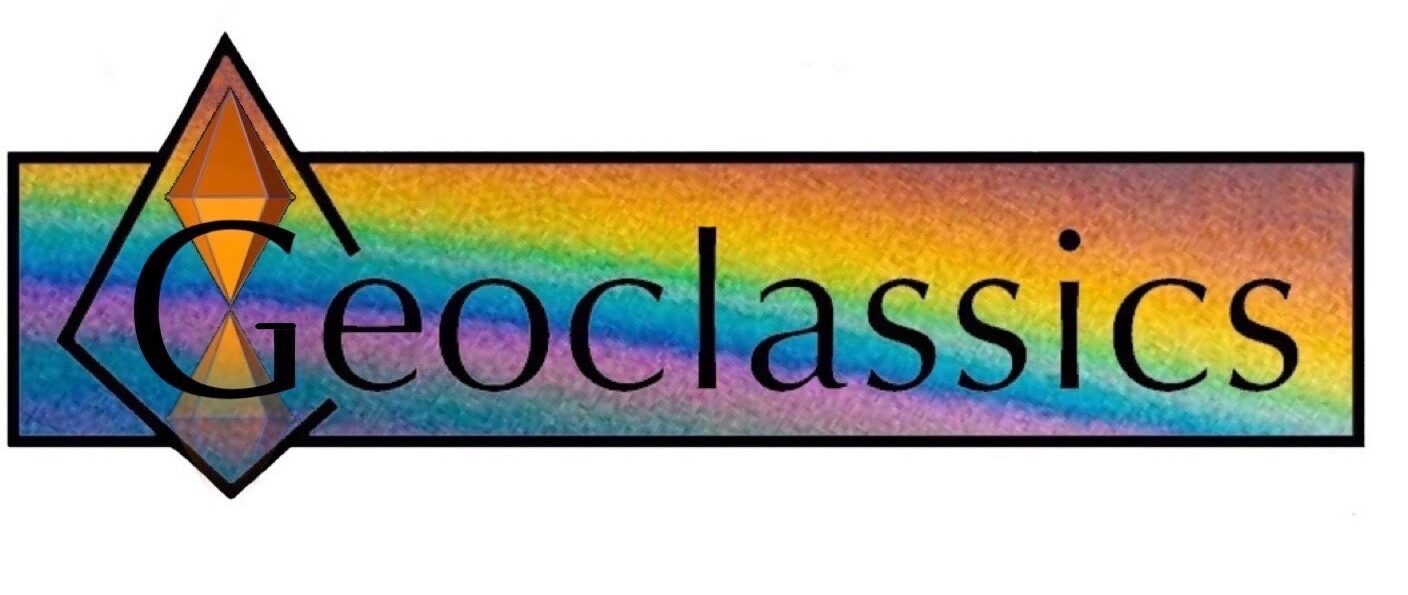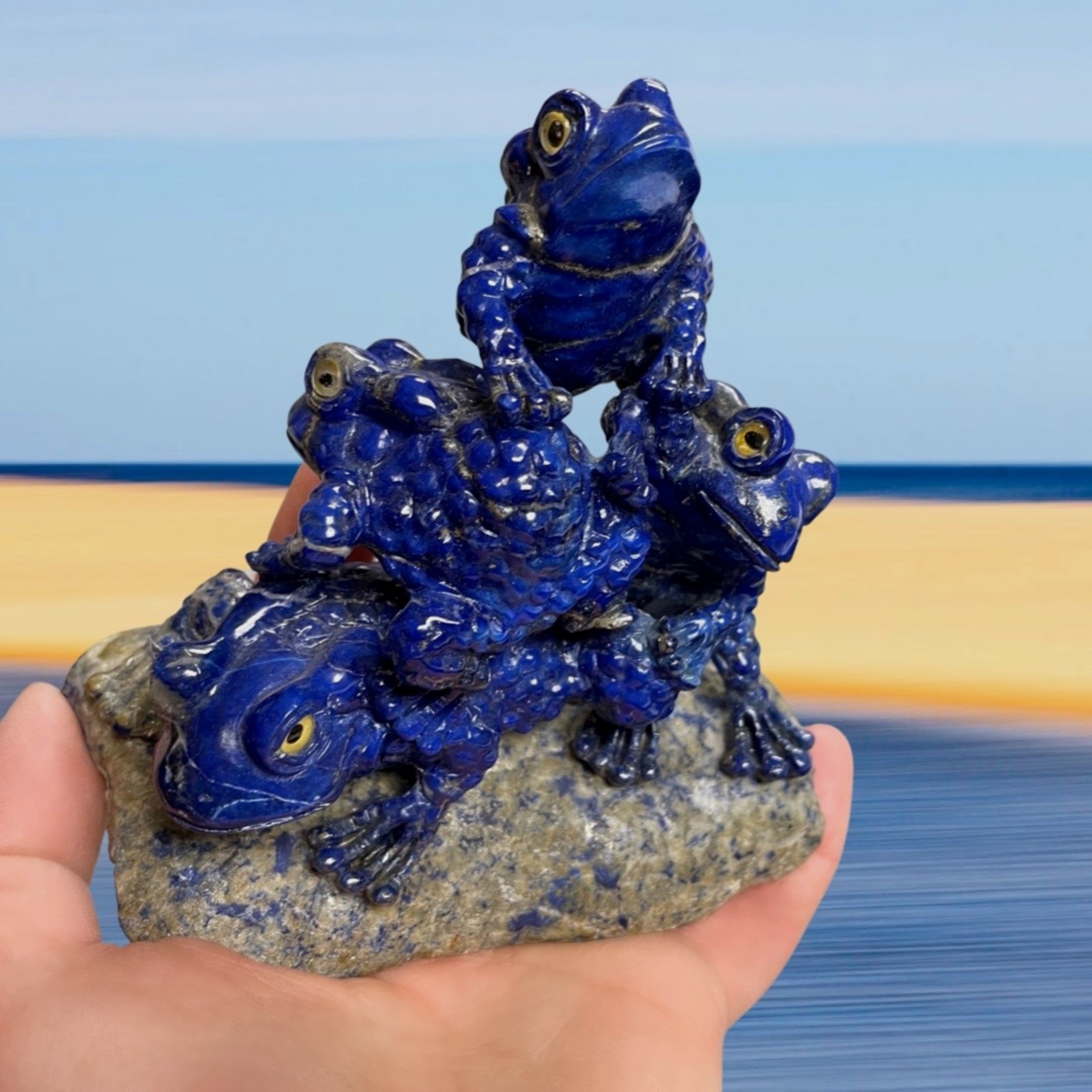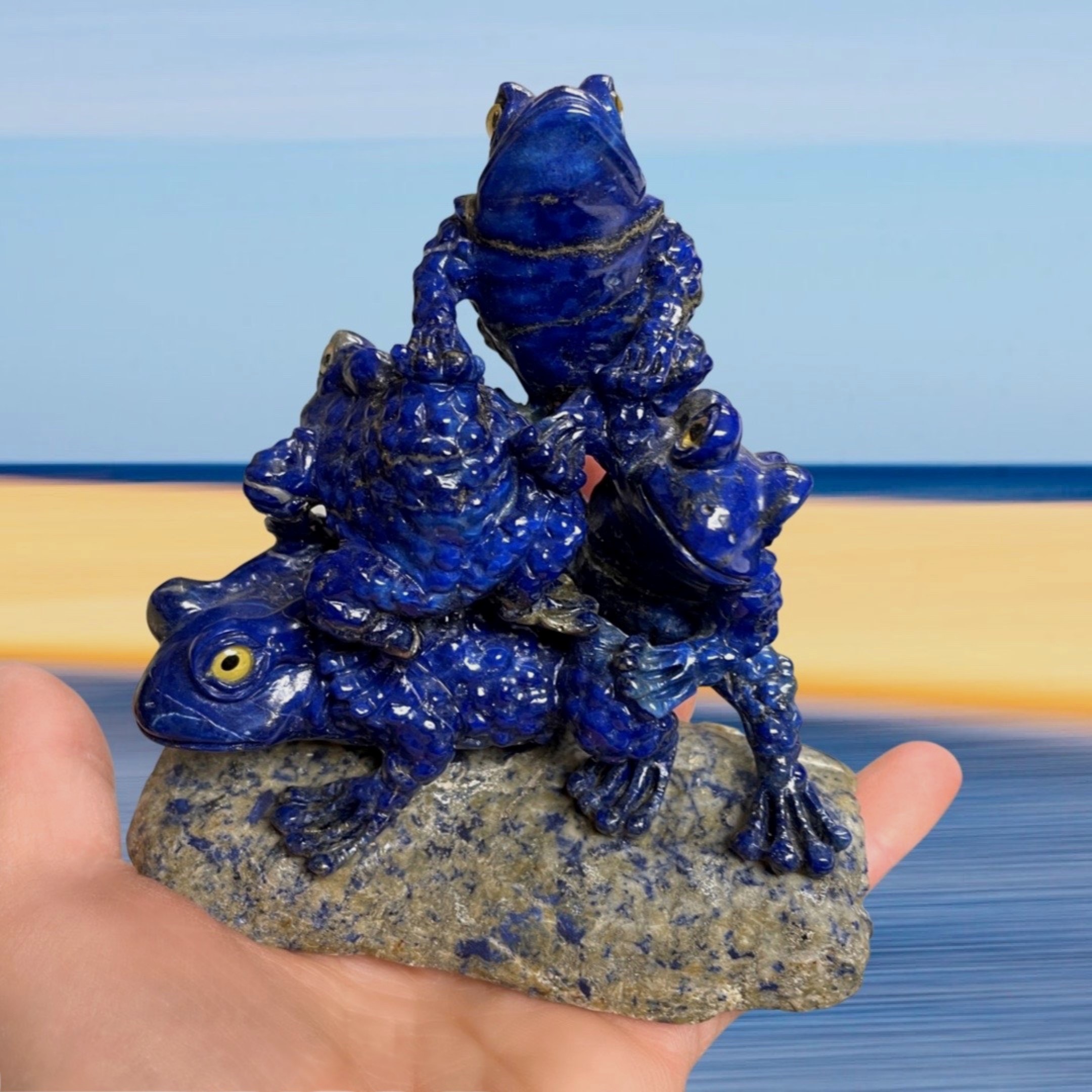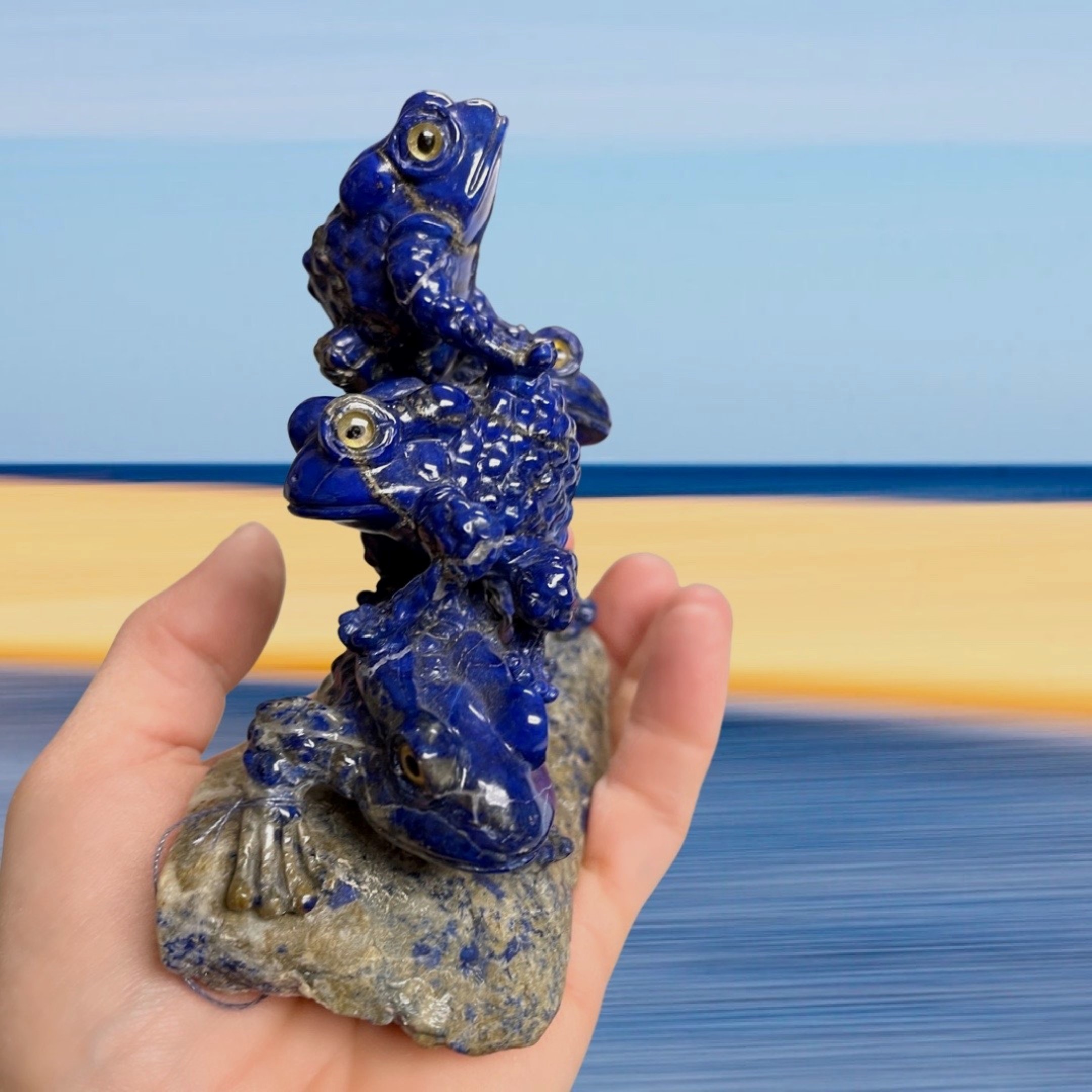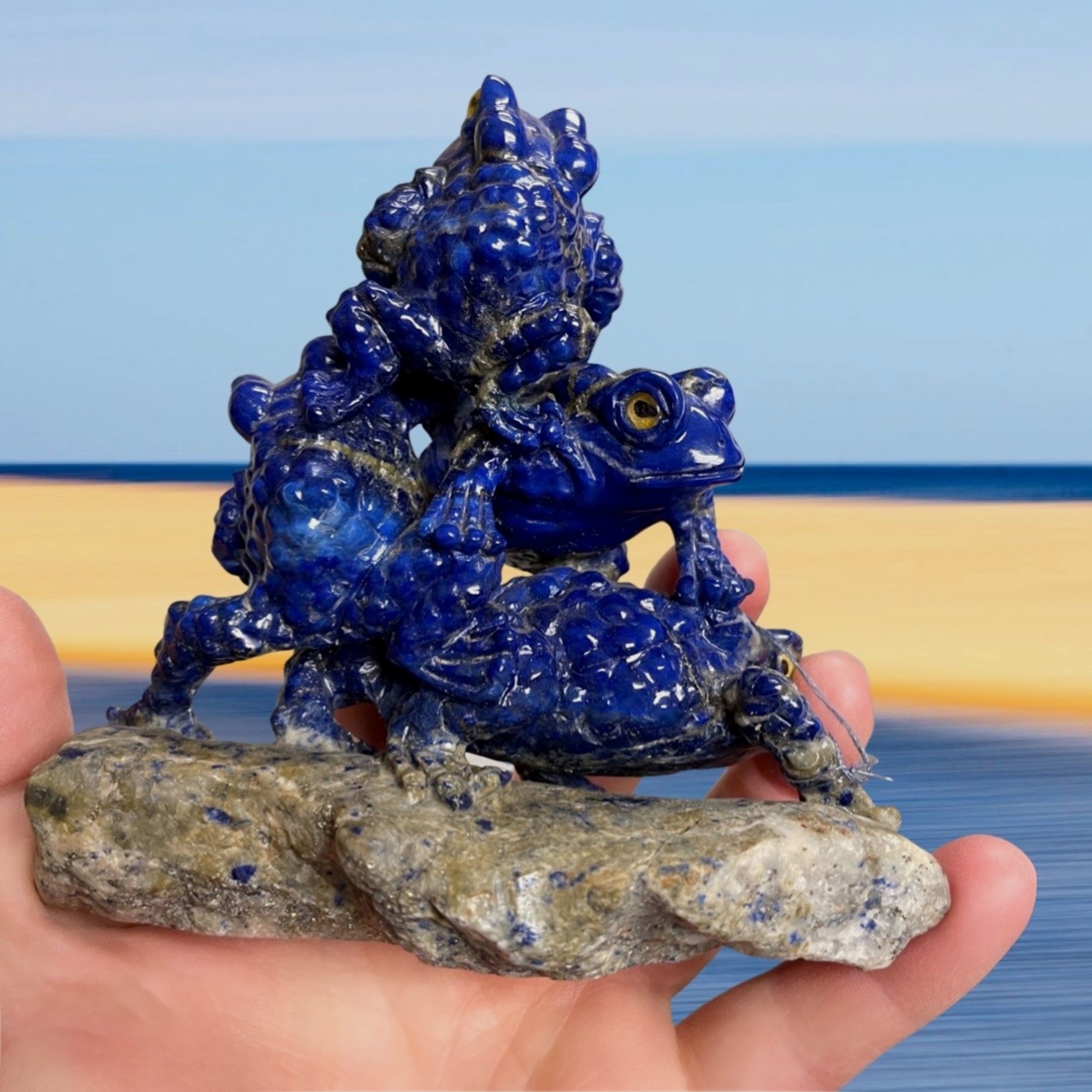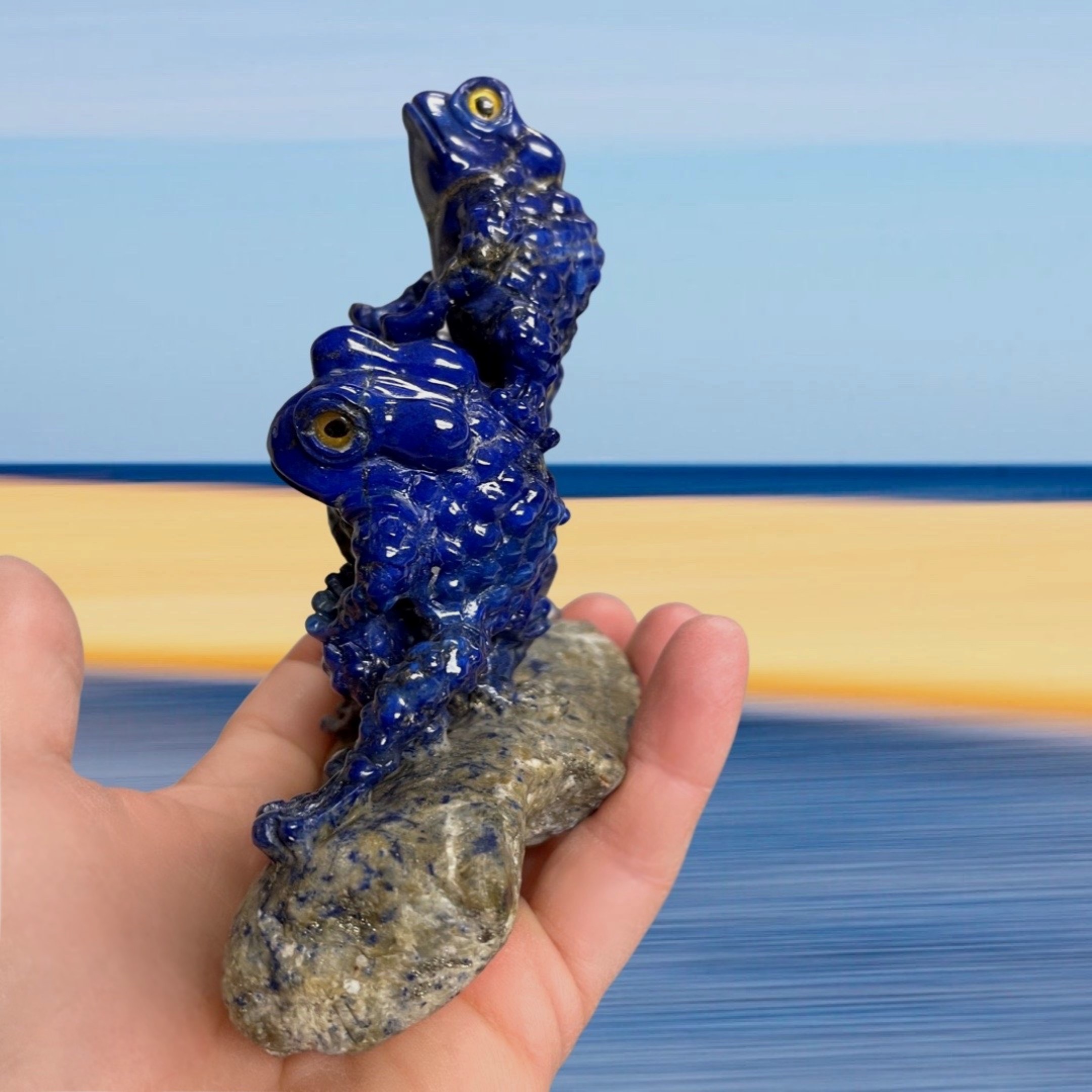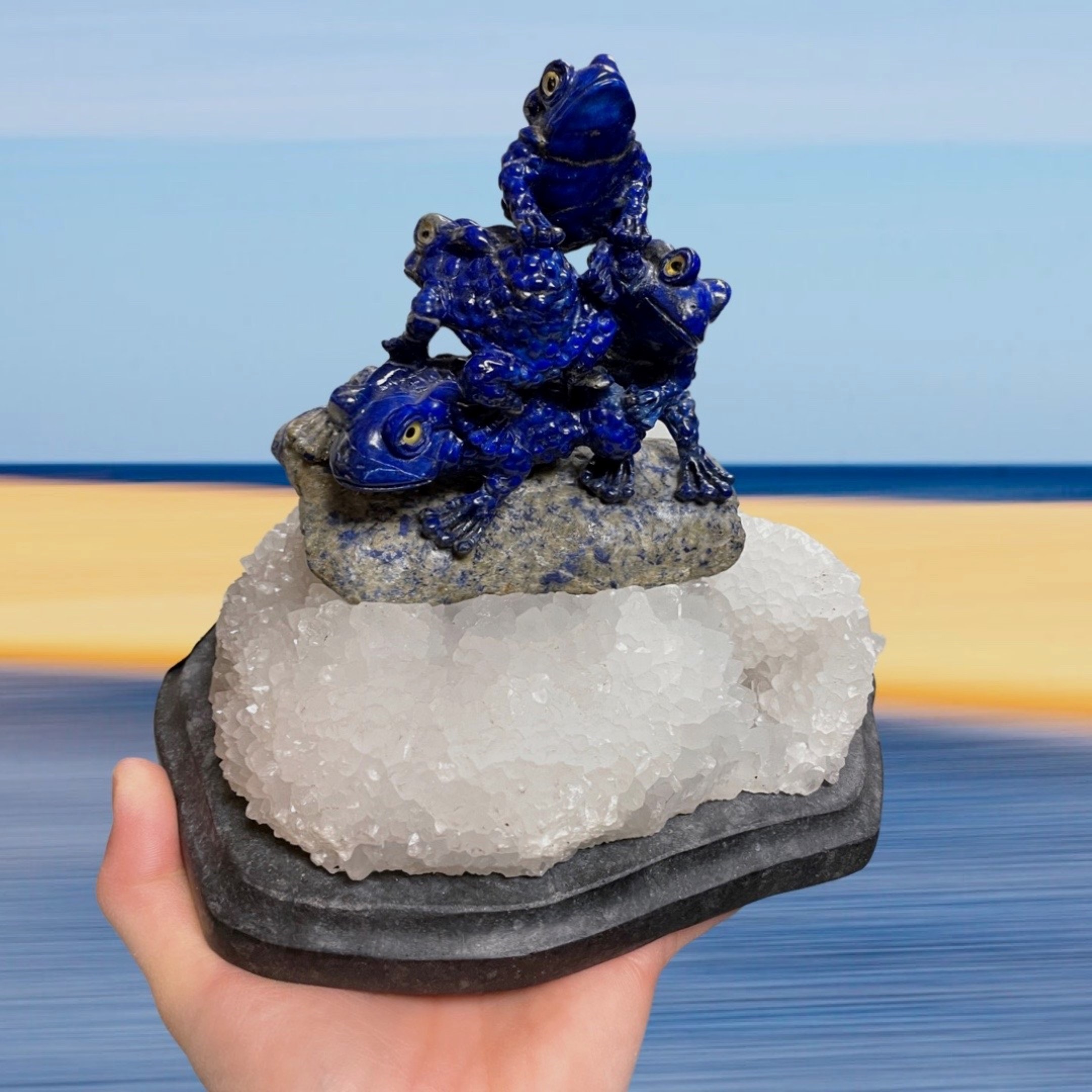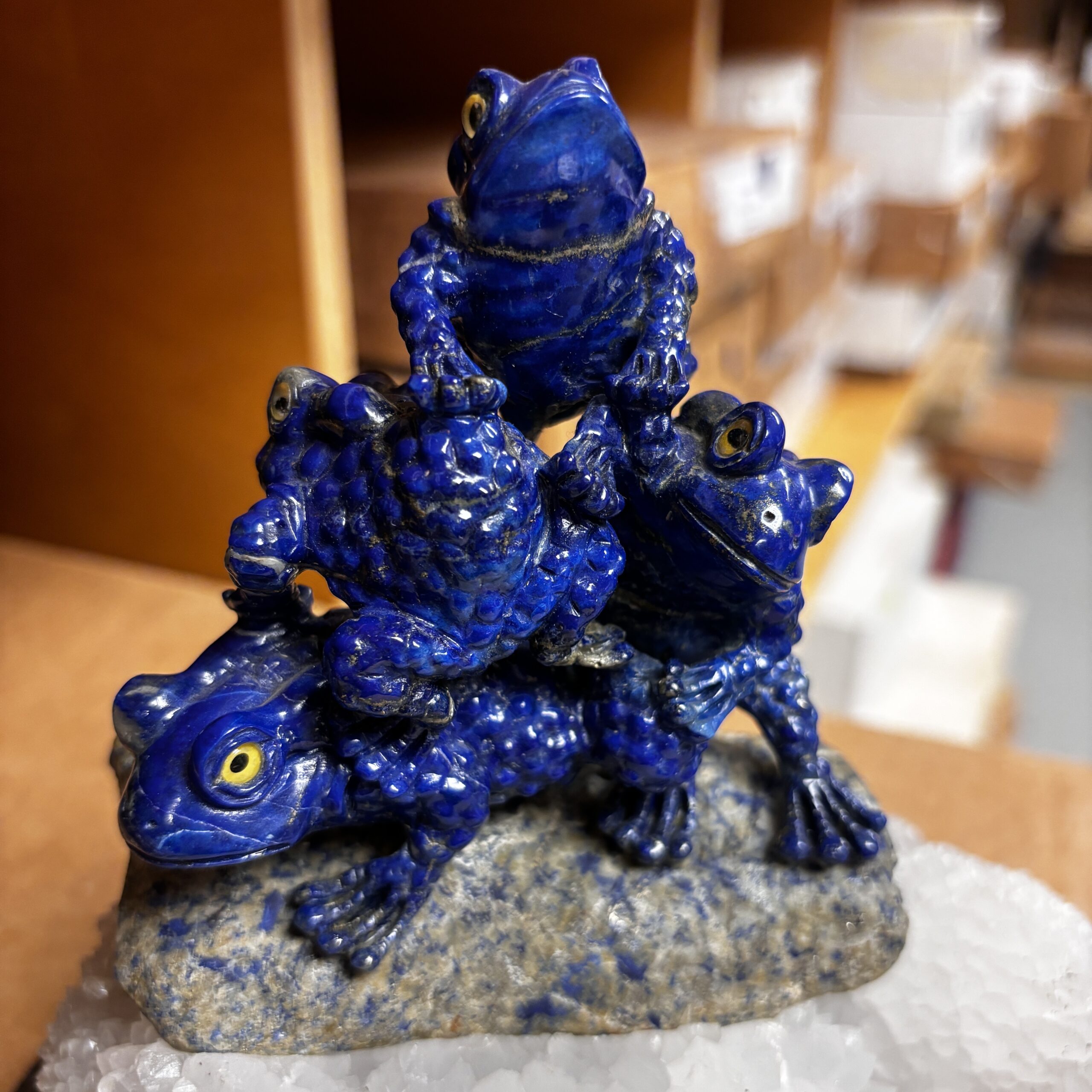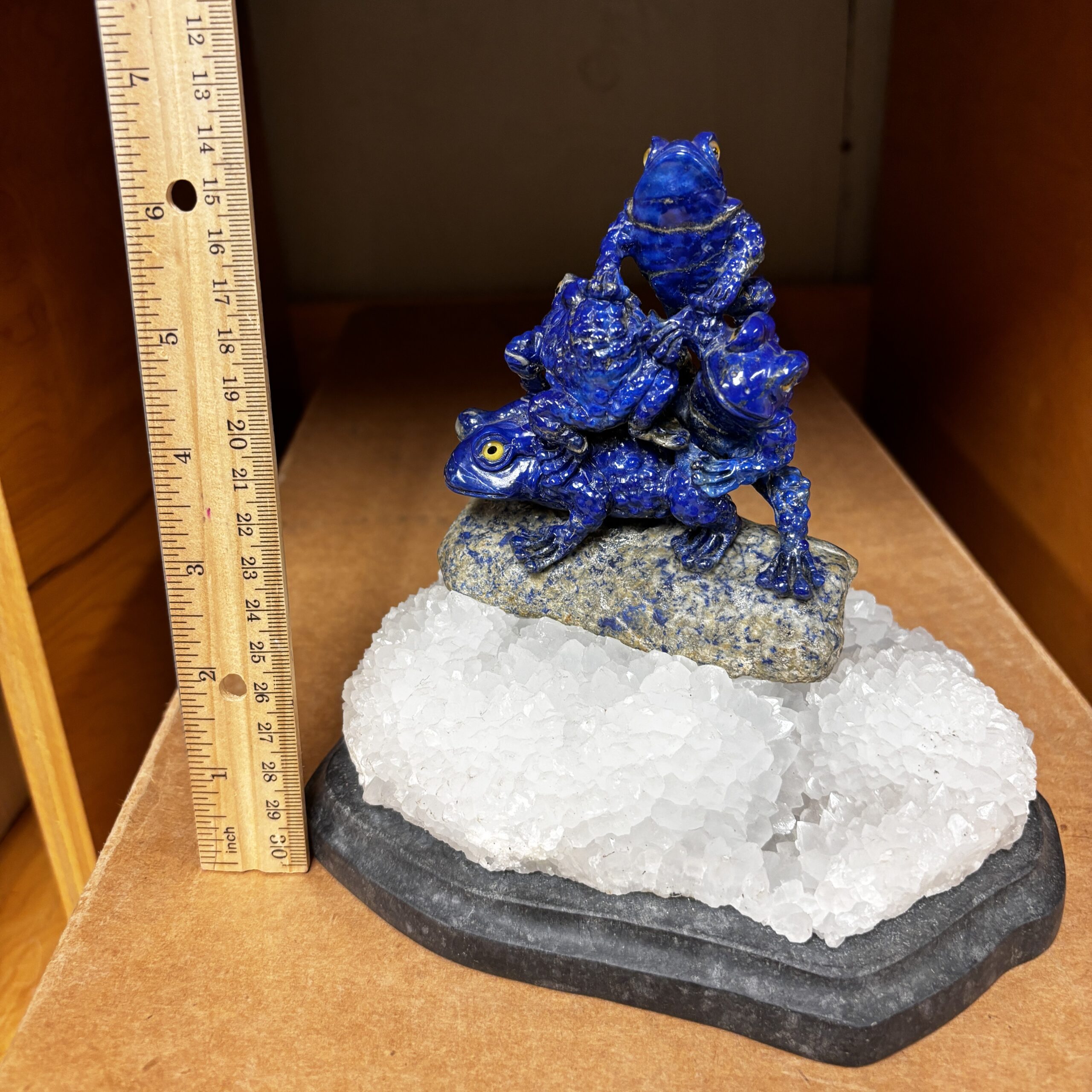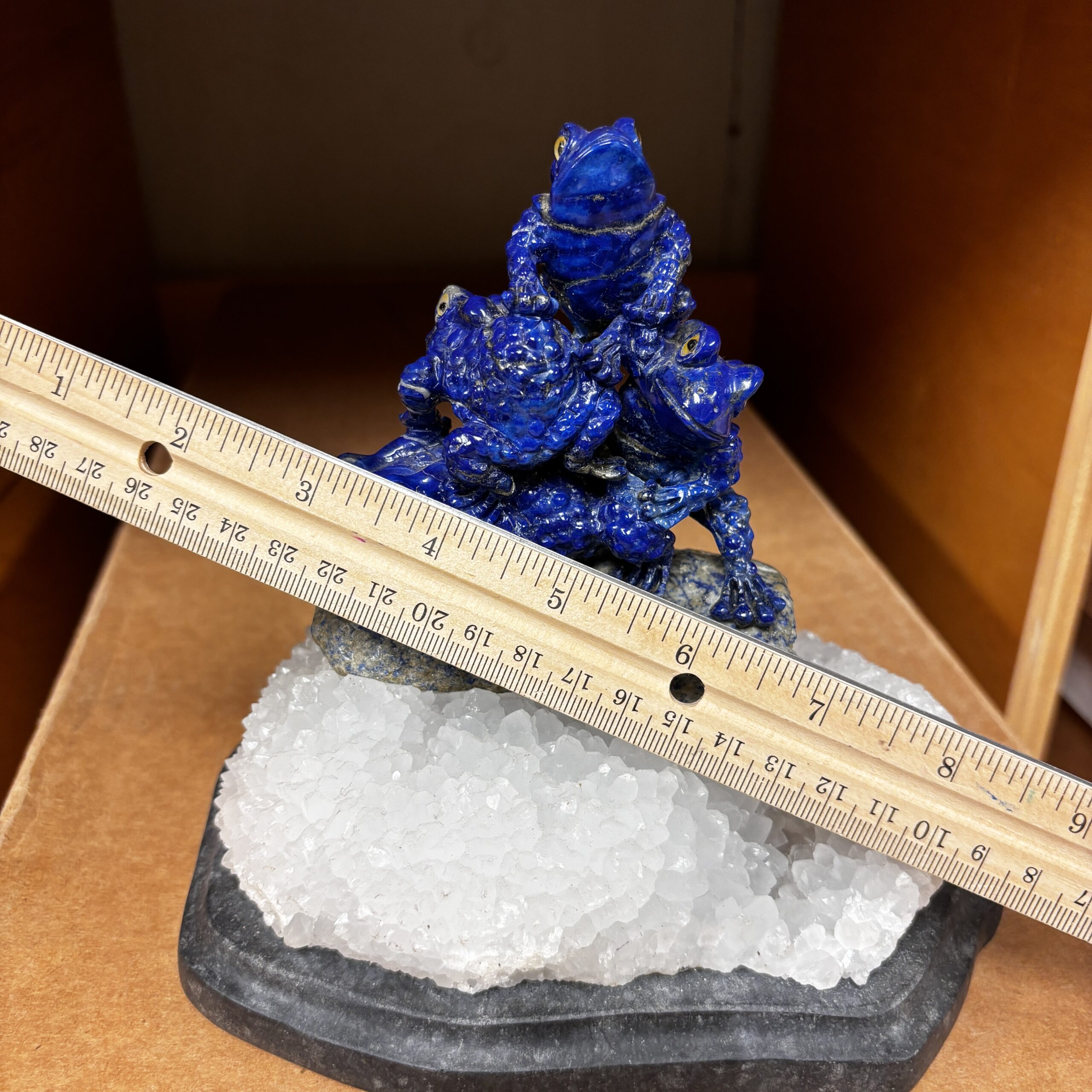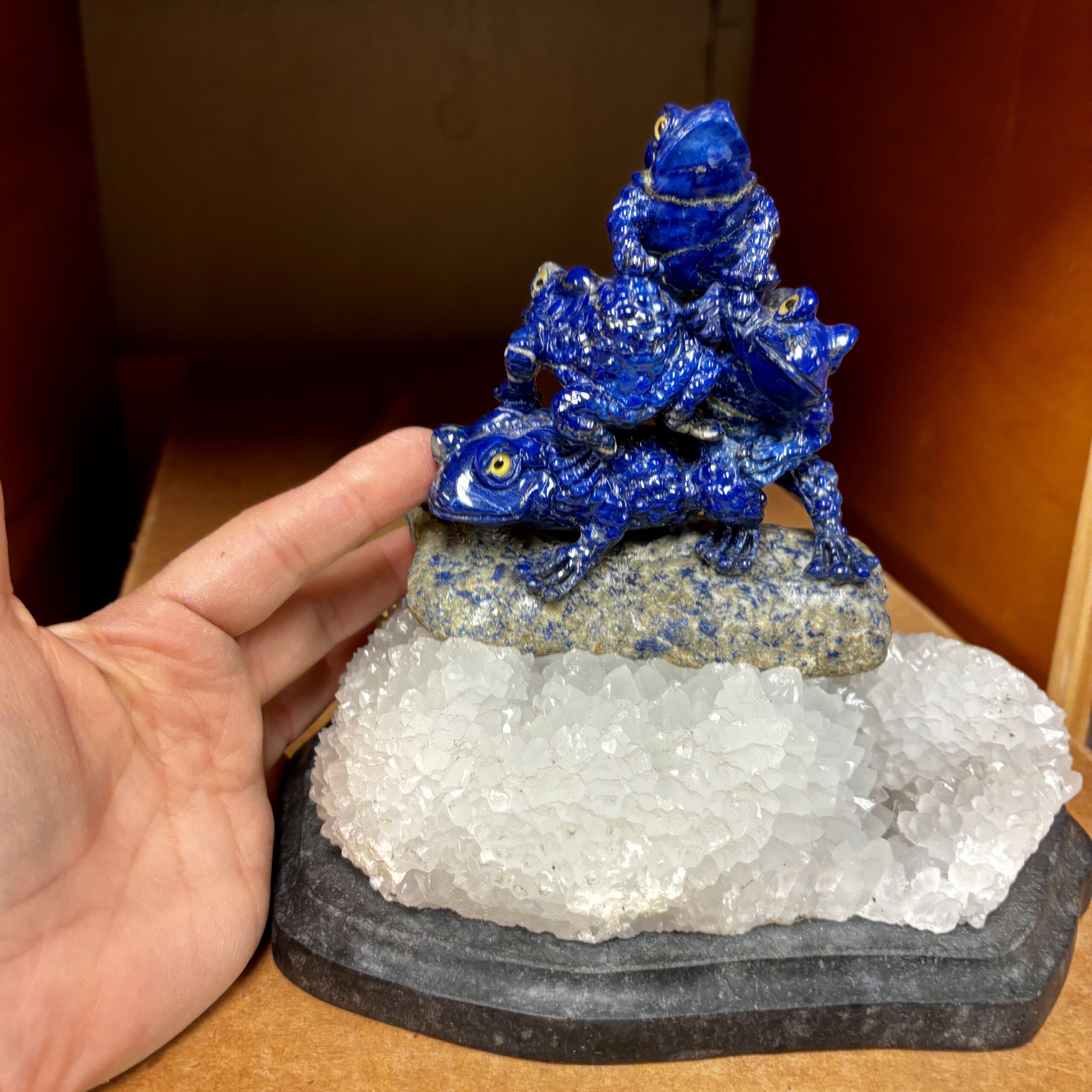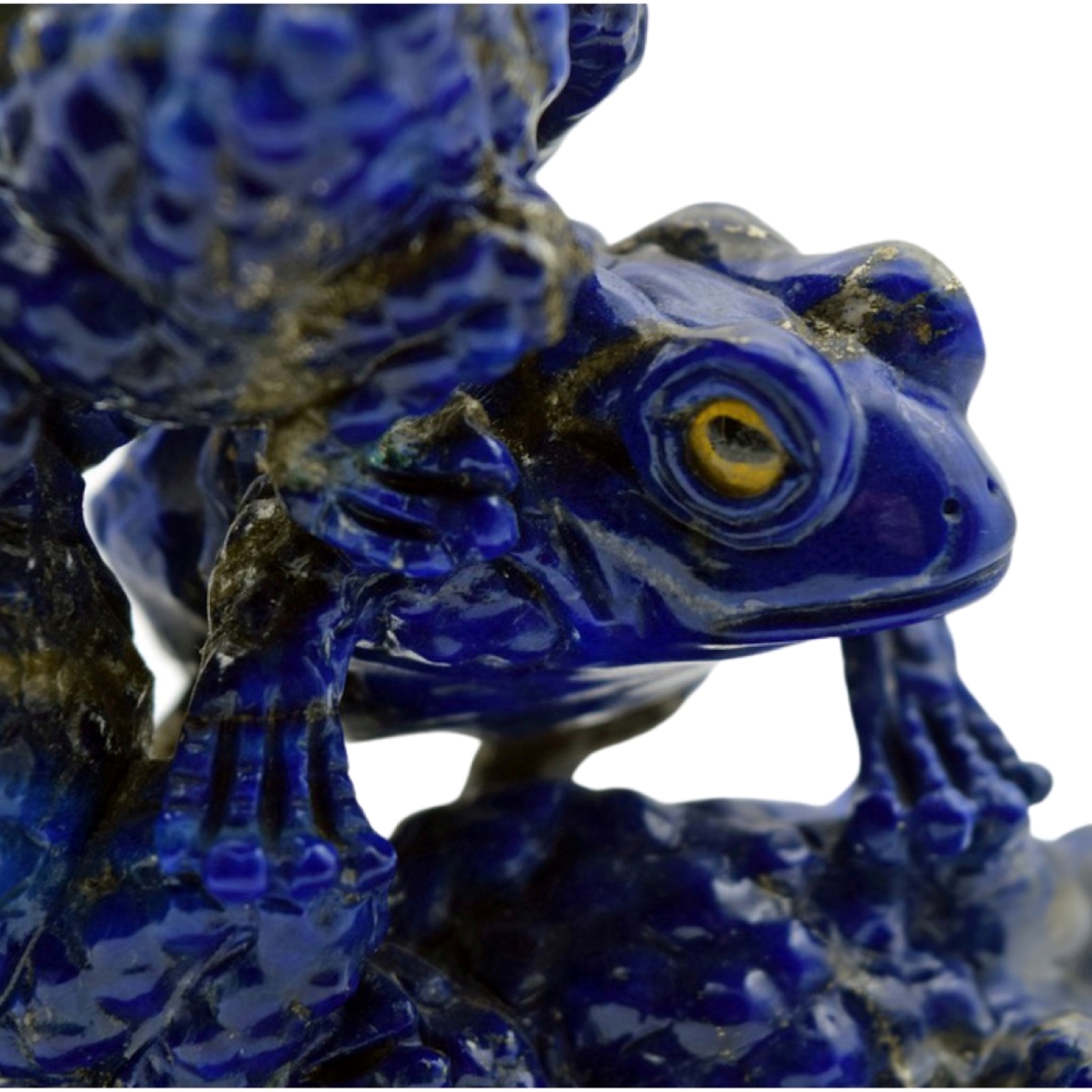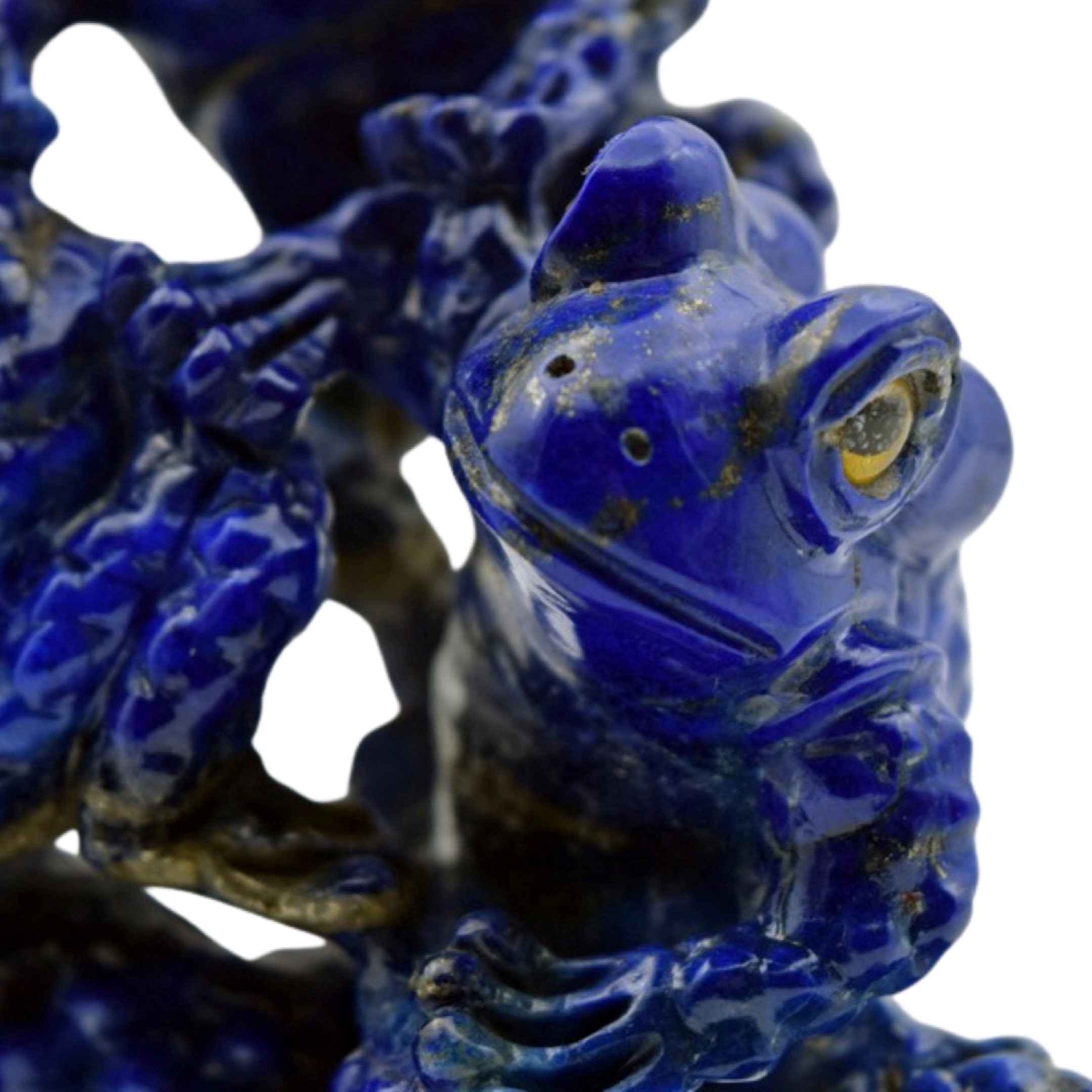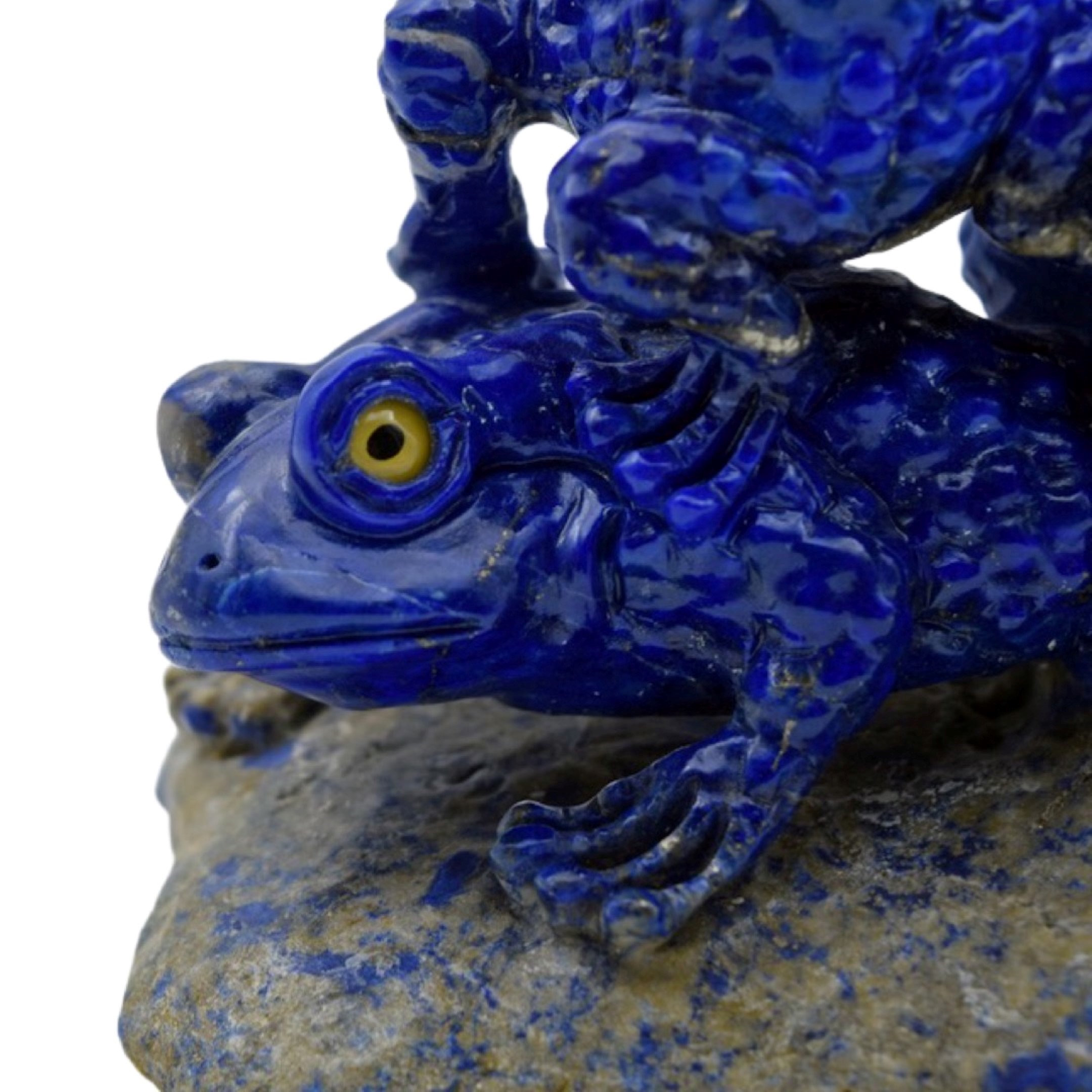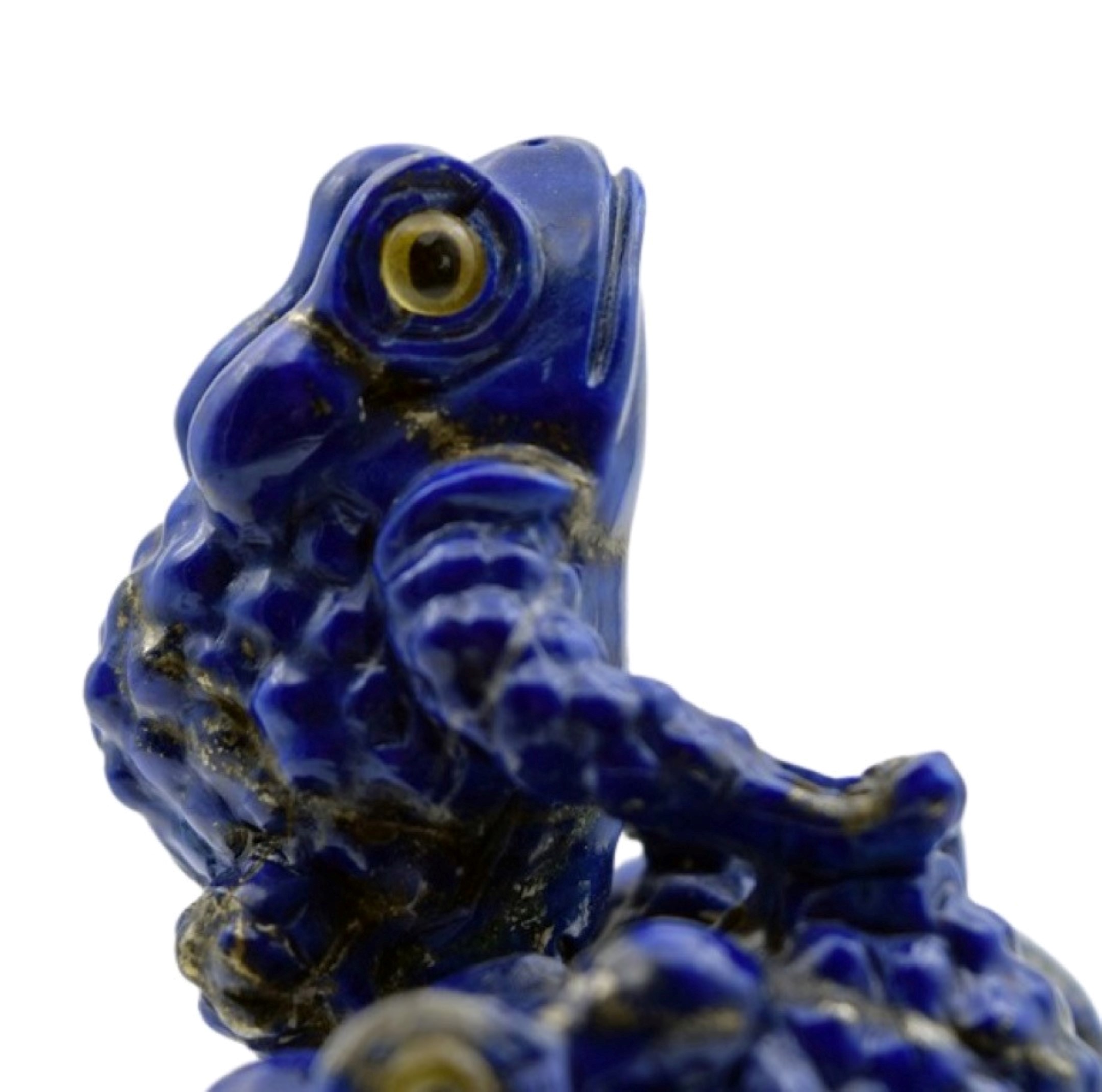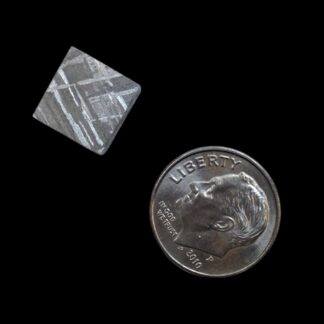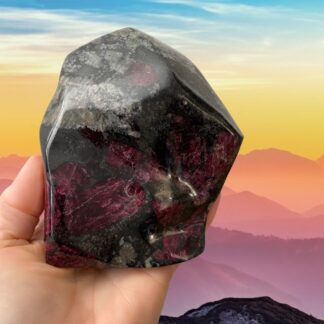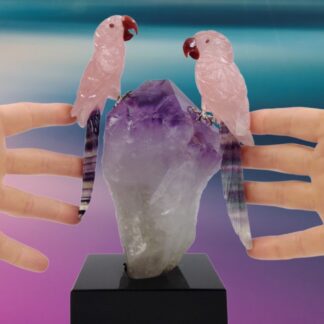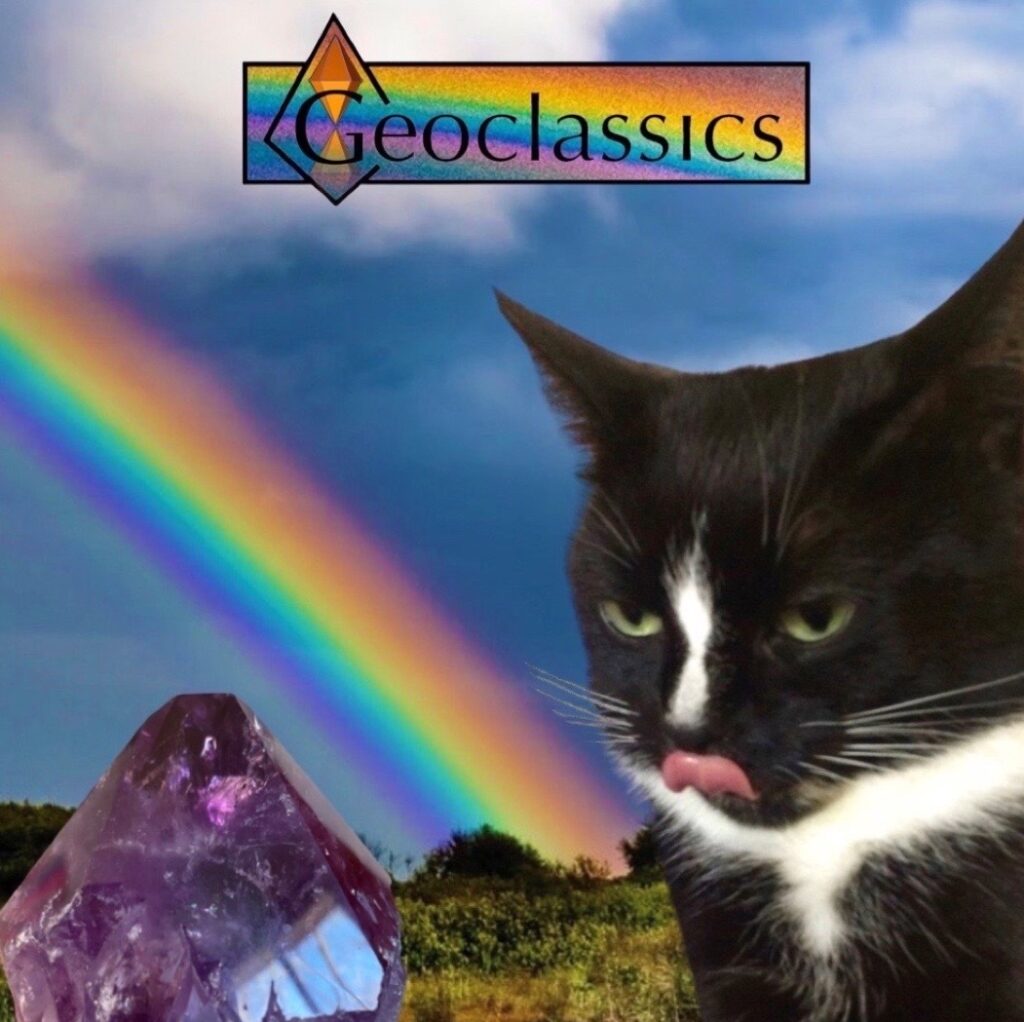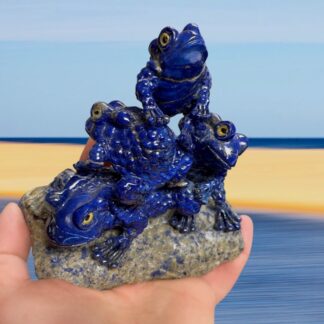Description
“Section Carving” of four toads of deep blue lapis lazuli with glittery pyrite inclusions piled atop their natural base of calcite and lapis lazuli with an additional, removable base of white calcite (calcium carbonate) and black basanite (igneous volcanic rock). Hand carved in China.
Dimensions (with removable base): 7.3″ tall x 6.4″ wide x 5.4″ thick
Weight: 5.1 lbs
“Section Carving” is a complex and difficult art to master. Defined as carving both the base and the subject from the same stone in one piece, the master carver must know not only carving techniques, but also the intricacies of the stone. Some inclusions or fault may not be visible until the carving is underway. The carver must then be prepared to alter the design immediately. Usually a sketch is drawn before the carving is begun, with alternate drawings to refer to should unexpected weak spots appear. While it takes eight to ten years to become a master carver, another three years or more are required to become proficient in section carving.
The name lapis lazuli comes from lazhuward, the Persian word for “blue,” and lapis, meaning “rock.” This beautiful royal blue stone, with a hardness of 5 to 6, is a sodium aluminum silicate which often has inclusions of pyrite and white calcite. Ancient Egyptians used powdered lapis for medicine and eye shadow. It was also made into jewelry and carved into scarabs for tombs and burial chambers. Catherine the Great decorated a room in her palace with lapis lazuli walls, fireplaces, doors, and mirror frames. Lapis is believed to bring inner peace and freedom from negative thoughts. It can help one learn more effectively and is excellent for enhancing memory. The finest lapis lazuli deposits come from the West Hindu Kush Mountains of Afghanistan, and it is also abundant in Chile.
